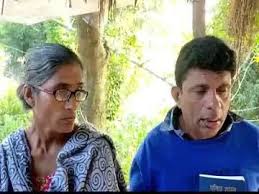
Subtitle: Christian Couple in Uttar Pradesh Sentenced to Five Years for Alleged Conversion Attempts
In a controversial verdict that has sparked international concern, a court in India’s northern state of Uttar Pradesh sentenced a Christian couple to five years in prison under the state’s stringent anti-conversion laws. This marks the first conviction under the Uttar Pradesh Prohibition of Unlawful Conversion of Religion Act, a law widely criticized for its potential to target religious minorities.
Pastor Jose Pappachan and his wife, Sheeja Pappachan, were convicted on January 22 by Additional District Judge Ram Bilash Singh in the Ambedkar Nagar district. In addition to their prison sentences, the couple was fined ₹25,000 (approximately $300) each. The charges stemmed from allegations made by a member of the ruling Hindu-nationalist Bharatiya Janata Party (BJP), who accused the couple of attempting to convert individuals from marginalized Dalit and tribal communities.
The Pappachans, originally from Kerala’s Pathanamthitta district, have denied the accusations, asserting that their work was focused on social welfare—providing education for children and helping individuals overcome alcohol addiction and domestic disputes. Despite their claims, the couple faced significant hostility, including an assault on Pastor Pappachan in 2021 by police and extremist groups in Bihar.
Escalation of Anti-Conversion Laws
Uttar Pradesh, India’s most populous state, enacted the Prohibition of Unlawful Conversion of Religion Act in 2021, later amending it in 2024 to include harsher penalties, including life imprisonment for severe violations. Critics argue that the law disproportionately targets Christians and other religious minorities. According to the United Christian Forum (UCF), Uttar Pradesh recorded 209 anti-Christian incidents in 2024 alone, the highest in the country. Currently, at least 70 Christians, including pastors, are imprisoned in the state for alleged violations of the law.
“This is the first time we have encountered such a sentence for a suspected conversion attempt,” said A. C. Michael, National Coordinator of the UCF. Pastor Joy Mathew, who has been assisting the couple, described the judgment as biased and vowed to appeal the decision in the state’s High Court. “There was no evidence on record to substantiate the conversion charges, but still, they were convicted,” he said.
Wider Implications for Religious Freedom
The conviction has raised alarm among human rights organizations and religious freedom advocates. Critics argue that the anti-conversion law’s vague provisions allow for its misuse against religious minorities. Under the guise of protecting individuals from forced conversions, the law has been used to suppress legitimate religious expression and outreach activities, particularly among socially marginalized communities.
Uttar Pradesh’s population of 200 million is predominantly Hindu (80%), with Muslims comprising 19% and Christians making up only 0.18%. Despite their small numbers, Christians have increasingly found themselves targeted by extremist groups and restrictive laws. The Pappachan case underscores growing concerns over the erosion of religious freedom in India.
International Reactions and Calls for Justice
The sentencing of the Pappachans has drawn attention from international human rights groups, with calls for the Indian government to ensure that laws are not weaponized against minorities. Critics emphasize the need for robust judicial review and safeguards to prevent misuse of anti-conversion legislation.
As the couple’s legal team prepares to challenge the verdict, the case stands as a stark reminder of the challenges faced by religious minorities in India. For many observers, the Pappachan conviction is not just about one couple but a troubling indication of the growing crackdown on religious freedoms in the world’s largest democracy.
Source: UCAnews.com
